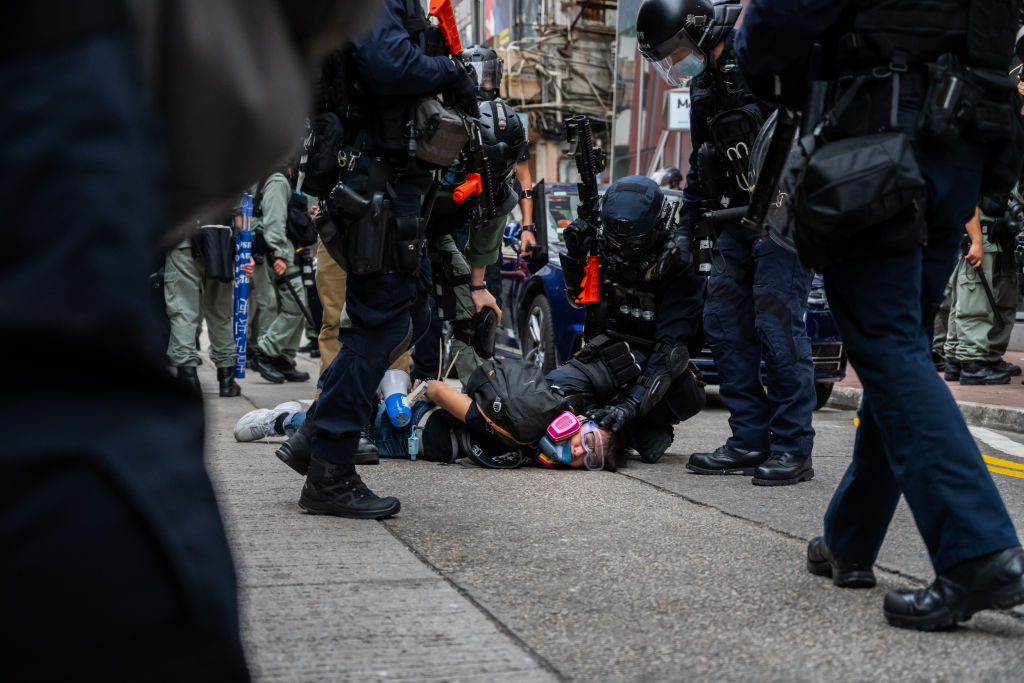How the Hong Kong calamity will play out

China’s decision to crack down on Hong Kong with a new security law has shocked the world. But to those who read the resolution issued last November by the Central Committee of the Chinese Communist Party, it comes as no surprise. In that document’s section pertaining to Hong Kong, the CCP signalled its intention to assert full control over the former British colony. Tighter national security laws and the establishment of unspecified new enforcement mechanisms would be just two components of a much larger, more comprehensive strategy.
Now that China is pursuing this strategy in earnest, we should expect it to follow through with the additional measures announced last November. Besides bypassing the Hong Kong legislature with a new national security law, the CCP also intends to change the procedures for appointing the city’s chief executive and principal officials. It will strengthen Hong Kong’s law enforcement capabilities and conduct a campaign to inculcate ‘national consciousness and patriotic spirit’ among Hong Kong’s civil servants and young people. The goal is to integrate the city’s economy much more closely with that of the mainland. As if the much-feared security law wasn’t bad enough, the worst is yet to come.
In any case, implementation of the security law will likely be enough to end the so-called one country, two systems governance model that the city has maintained since returning to Chinese rule in 1997. According to remarks from a deputy chairman of the standing committee of the National People’s Congress, Article 4 of the proposed law will authorise ‘relevant national security agencies of the central government’ to establish permanent operational branches in Hong Kong.
Although we don’t yet know which ‘relevant national security agencies’ this applies to, we can be certain that it will include the Ministry of State Security, the Ministry of Public Security and the People’s Armed Police. Officials from the Cyberspace Administration, which enforces cybersecurity and online censorship, may also be dispatched to Hong Kong.
Worse, the proposed law will give these agencies a sweeping mandate. According to Article 7, each agency will have a duty to ‘prevent, stop and punish any activities that split the country, subvert the power of the state, organize and engage in terrorism, and activities by foreign and external forces that interfere in the affairs of Hong Kong Special Administrative Region.’
If the law is strictly enforced, one should anticipate Chinese security agents engaging in surveillance, intimidation and arrests of not only Hong Kong residents, but also foreign nationals deemed to pose a threat to national security. The People’s Armed Police may well be deployed to suppress the large demonstrations and riots that are sure to follow. Although it remains unclear how individuals accused of subversive activities will be prosecuted, there’s a strong possibility that they will be transferred to Chinese courts, where securing convictions for trumped-up charges will be easier than in Hong Kong’s courts, which remain largely independent.
The people of Hong Kong will not submit to China’s police state without resistance. In the near term, the new law’s passage will only escalate tensions in the city, as demonstrated by a recent clash between protesters and Hong Kong police. As Chinese security agents begin their enforcement activities in the coming months, they will likely encounter fierce resistance from local pro-democracy activists. Spiralling violence will precipitate an economic meltdown as capital and talent flee Asia’s global financial hub.
Meanwhile, China hawks in the United States will view this looming catastrophe as a godsend. Last November, Congress passed the US Hong Kong Human Rights and Democracy Act, which requires the US Department of State to certify on an annual basis that Hong Kong ‘continues to warrant treatment under United States law in the same manner as United States laws were applied to Hong Kong before July 1, 1997’. If Chinese security agents start arresting pro-democracy activists and their Western supporters in Hong Kong, it’s impossible to imagine that US Secretary of State Mike Pompeo would allow the department to recertify the city’s status.
Decertification would bring an end to all or most commercial and travel privileges that the US has maintained for Hong Kong since 1997, possibly dealing a fatal blow to the city’s economy. And the US won’t be the only Western country to make China pay a price for its aggressive gambit. For US allies that have been hesitant to take sides in the unfolding Sino-American confrontation, China’s latest move will make their decision much easier. Whatever doubts they may have harboured about plunging the world into another cold war will have been assuaged. China will have left them with no alternative but to join a US-led anti-China coalition.
One can be confident that China’s leaders have considered these calamitous consequences and calculated that imposing the new security law on Hong Kong was worth the risks. The international community must prove them wrong.